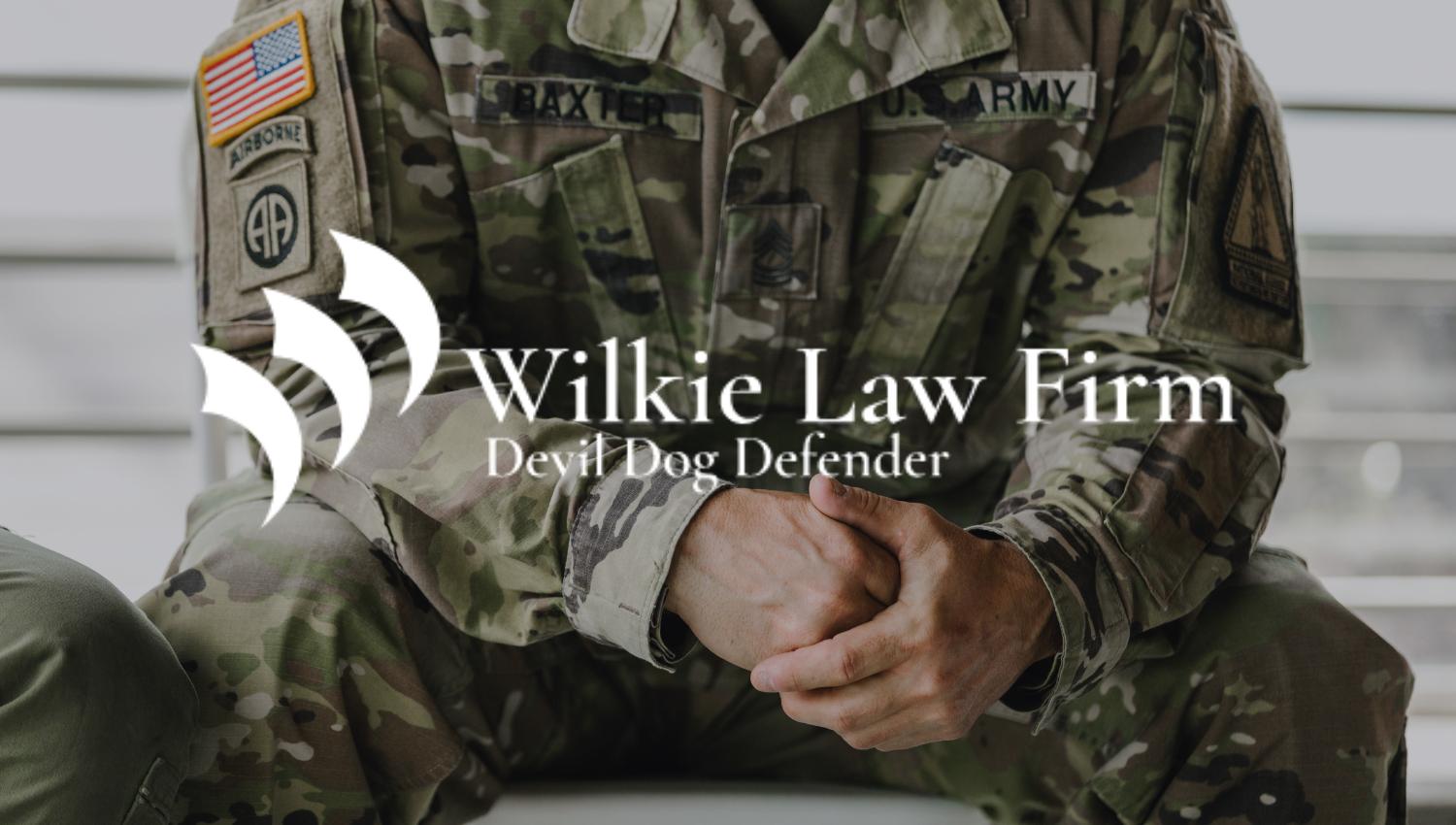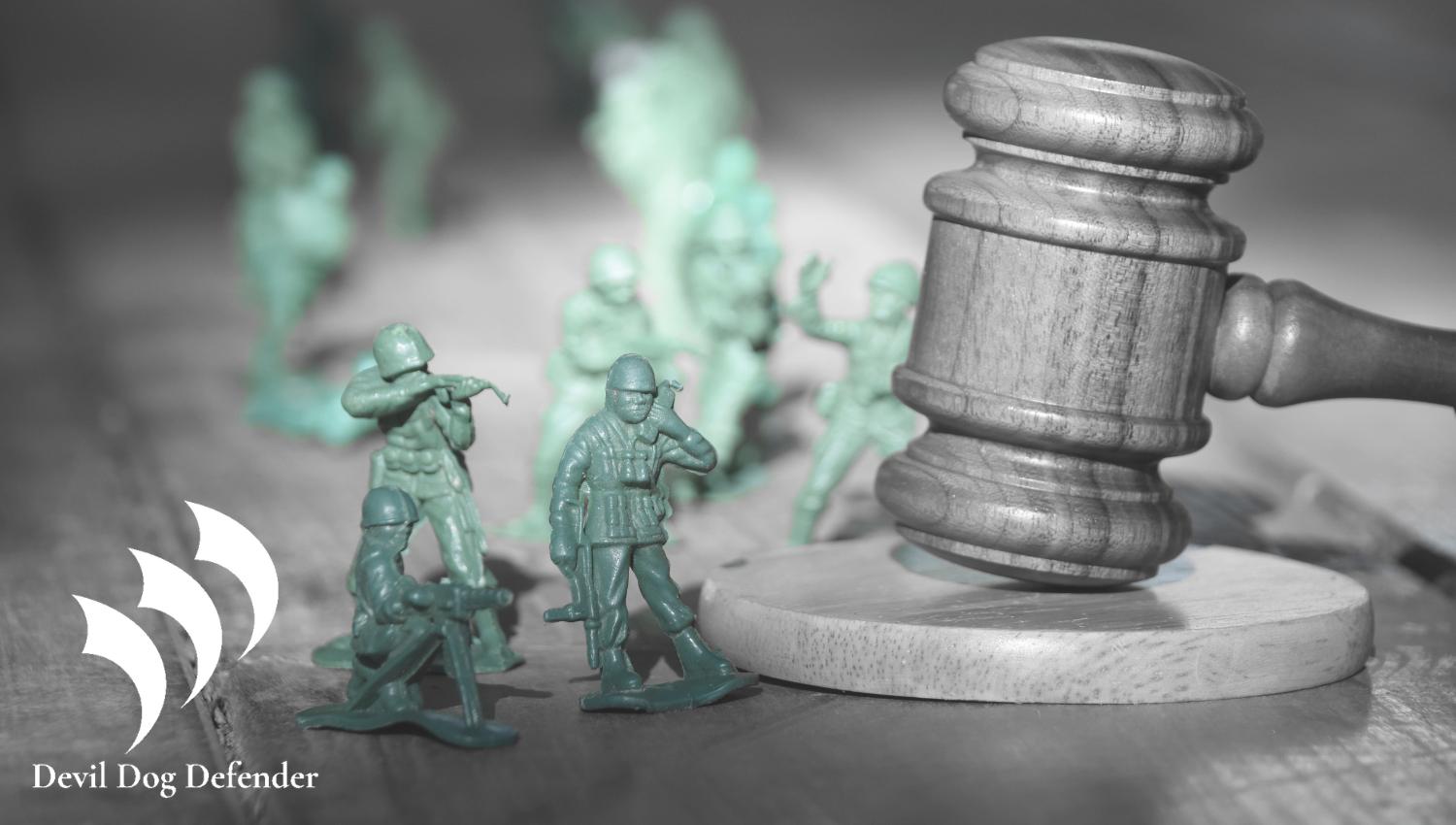Article 15 UCMJ
Military Defense Attorney For Non-Judicial Punishment
Home » Military Defense Lawyer » Article 15 UCMJ
Military Counsel
UCMJ Articles
Article 15 Counseling/Non-Judicial Punishment
Each branch of service allows your command to use nonjudicial punishment (NJP) when an alleged minor violation of the Uniform Code of Military Justice (UCMJ) has occurred. Your command is authorized to deal with minor violations or infractions of the UCMJ by offering you the opportunity to have a hearing pursuant to Article 15 of the UCMJ.
When offered an Article 15 or NJP by your command, you can either accept nonjudicial punishment or you have a right to turn down the Article 15 and demand a court-martial trial. Regardless of your decision, it’s always best to speak to an experienced military defense attorney for Article 15 counseling. (Prior to making your decision to accept or refuse NJP, you also have the right to consult with an attorney.) Refusing NJP does not automatically mean that you will be sent to a court-martial, as the issue could be dropped due to insufficient evidence to support the charge(s).
Consulting with an experienced criminal defense attorney like Aden Wilkie will allow you to make an informed decision after assessing the burden of proof. Aden Wilkie is located in Jacksonville, NC and services armed forces at Camp Lejeune and Fort Bragg as well as other bases, camps, stations, and posts in the surrounding states and across the United States. To speak with him directly, call 910-333-9626 today.

Article 15 FAQs
What is an Article 15 Discharge?
An Article 15 typically umbrellas “minor offenses.” This typically does not include misconduct offenses that, if met with a trial by court-martial, would be punished by a dishonorable discharge.
However, the final determination as to whether an offense is “minor” is within the discretion of the commanding officer.
Who Can Recommend an Article 15?
A commander can give an Article 15 at any point for any violation of the UCMJ. Only commanders or officers in charge are authorized to impose punishment under UCMJ Article 15.
Does an Article 15 Count as a Conviction?
An Article 15 hearing is not a court martial conviction. Instead, it is an administrative punishment. If you’ve been investigated by any MICO, there may be a record of the arrest and the charges in your NCIC records.
However, keep in mind that accepting an Article 15 is not an admission of guilt.
How Long Does an Article 15 Stay on Your Record ?
If you’re found guilty at your Article 15 hearing, this will be filed in your records. However, the Article 15 will be removed from your record after 2 years.
What are the 3 Types of Article 15?
Article 15s, or nonjudicial punishment proceedings, come in different levels: summarized, company grade, and field grade. They differ in two respects–the severity of the punishment and how the record can affect the soldier’s future.
Summarized Article 15s are filed in the local files for a period of 2 years or until the soldier transfers, whichever occurs first. Company and Field Grade Article 15s can be filed in the soldier’s official military personnel file. The commander in each case decides where to file the Article 15. An Article 15 in a soldier’s official records will affect promotions, clearances, and special assignments.
Can an Article 15 Be Removed?
Since an Article 15 in your military record can impact your ability to obtain special assignments, promotions or clearances, it only makes sense to want it removed as soon as possible. Luckily, if enough time has passed without any further misconduct or disciplinary issues, in certain cases, you can get your Article 15 removed from your file.
What Happens After an Article 15?
What Happens If I Accept NJP?
- Accepting NJP is not an admission of guilt. It simply means that you elect not to have a judicial process (that is, a trial) regarding the alleged misconduct.
- You agree to have your commander determine whether you are guilty or not guilty of the violation. This means your commander decides your fate, acting as both the judge and jury for the case.
- You waive the right to a trial by court-martial.
- You and only you can present evidence in your defense. An attorney will not be allowed to argue or advocate on your behalf to the commander during the NJP.
Possible NJP Outcomes
- Not guilty
- The proceeding ends and there is no punishment imposed as a result of the action.
- Guilty
- Punishment as officer deems appropriate.
- Suspended punishment (full or partial)
- If no punishment assigned, it is as if the NJP never took place and double jeopardy-like protections kick in. You cannot be punished for the exact same facts a second time, which is a windfall for you.
- A probationary-type period may be given, so that if you stay out of trouble, your sentence would be dismissed.
Experienced military defense counsel can be instrumental in achieving these results.
Maximum Punishments an Enlisted Member Can Receive
If heard by a Field Grade Officer (O-4 and up)
- Admonition or reprimand
- Confinement on diminished rations
- Correctional custody of not greater than 30 days
- Forfeiture of not greater than half of base pay for not more than 60 days
- Rank reduction (to E-1 for E-4 & below, one pay grade for E-5 & up)
- Extra duty of not more than 45 days
- Restriction of not more than 60 days
If heard by a Company Grade Officer (up to an O-3)
- Admonition or reprimand
- Confinement on diminished rations
- Correctional custody of not greater than 7 days
- Forfeiture of not more than 7 days base pay
- Rank reduction (one grade for E-4 & below, no reduction for E-5 &up)
- Extra duty of not more than 14 days
- Restriction of not more than 14 days
There are subsequent administrative actions possible when receiving a guilty verdict at nonjudicial punishment proceedings. If found guilty at NJP, other administrative consequences can flow from this fact, including an Unfavorable Information File (UIF) in your Official Military Personnel File (OMPF) or a derogatory performance or Fitness Report evaluation.
What Happens If I Refuse NJP?
If you decide to refuse or “turn down” an Article 15, your command will be forced to decide to either drop the case or forward it for prosecution via a court-martial. If your case proceeds to a court-martial, it would typically be a summary court-martial as the subject of a proposed or offered NJP stems from minor misconduct. More serious misconduct would be brought to a Special court-martial or General court-martial. The consequences of a court-martial can be onerous, potentially resulting in jail time, punitive discharge, a reduction in rank, a possible federal conviction, and/or the denial of benefits and future employment opportunities.
Obviously, the decision of whether to turn down an Article 15 and in turn demand a court-martial is serious, and consulting with an experienced military defense attorney is essential. The Devil Dog Defender handles many of these cases, takes the time to listen to your concerns, and provides you with a seasoned, realistic evaluation of your case moving forward. Knowing the short and long-term legal consequences of your choice is just the beginning of your battle. Aden Wilkie can help guide you every step of the way and onto the best decision given the circumstances surrounding your particular situation.

Should I Hire a Civilian Attorney for an Article 15 Counseling?
If you choose to hire a civilian attorney for an Article 15 counsel, your attorney will:
- Marshal (gather) all the evidence and appropriate witnesses;
- Prepare witnesses to directly substantiate your innocence or mitigate your guilt; and
- Set you up for the best possible presentation of yourself and the evidence to your Commander during the NJP.
Aden Wilkie, the Devil Dog Defender, can provide unmatched legal advice and develop witnesses of your good character, positive military achievements, good duty performance and evidence in extenuation and mitigation of your case. The evidence presented may include statements and/or documentation of your personal or family situation, awards, duty performance, and character and reputation. This evidence will include the potential impact of any imposed punishments on you, your career, your family, and your children.
It is vital to use the knowledge of a seasoned military attorney to organize and prioritize the material to present to the command. Call The Wilkie Law Group at 910-333-9626 to arrange your consultation today.
Why Should I Hire a Civilian Attorney Instead of Active Military Counsel?
To protect your freedom, your career, and your good name, hiring civilian counsel vs. active military counsel may be preferred or even necessary for a number of reasons. For example, when you accept free legal counsel provided by the military, your case is assigned to an attorney based on who is available at the moment. That means your own preferences or interests are not taken into account. Simply put, you get who you get.
On the other hand, when you hire outside legal counsel from a private civilian defense attorney, you have the power to choose someone you trust and feel comfortable with handling your case. You have a say in who represents you, and you are able to factor in your own preferences. As such, make sure you choose someone with the right attitude, experience, time, dedication, and any other qualities that matter to you.
Another huge advantage to obtaining civilian counsel is that they are not subject to threats or intimidation the way that military defense attorneys are. Things like the chain of command, ranking, and supervisory chain of responsibility have no influence or effect whatsoever on civilian counsel. This means there is nothing to distract or deter them from pursuing your best interests. For example, a defense attorney like Aden Wilkie is completely unconcerned about things such as an evaluation report or an opportunity for promotion. Unlike military-assigned counsel who must work under restraints by their chain of command, Aden does what is necessary to best represent the interests of his clients. There is no chain of command or other influencing factors at play when the Devil Dog Defender takes on your case.

Yet another benefit to hiring civilian counsel is knowing that they are 100% dedicated to your case and will put in the time and effort it takes to build the strongest defense possible. As a private attorney working for himself, Aden Wilkie gets to choose which cases he takes on and when he takes them on. He is careful not to overload his schedule so that he can dedicate enough time and resources to the cases he does choose to take on. Meanwhile, military-provided counsel does not have a say in the cases they get. They are responsible for taking every case that comes through the door, which often means they are overloaded, overwhelmed, and overworked. This grants them significantly less time to focus on your case, which in turn can have a significantly negative effect on the outcome of your case.
These are only a few reasons why procuring a private civilian attorney who is experienced in Military law may lead to a much better outcome than accepting uniformed counsel. Call 910-333-9626 today to speak with Aden Wilkie and see for yourself why he is the best fit for you.
Contact an Article 15 Counseling Attorney
It is vital to use the knowledge of a seasoned attorney to organize and prioritize the material to present to the command. Call The Wilkie Law Group at 910-333-9626 to arrange your consultation.
This information is intended to educate and help you better understand the process and is not meant as a substitute for the personalized advice of an experienced criminal defense attorney.
